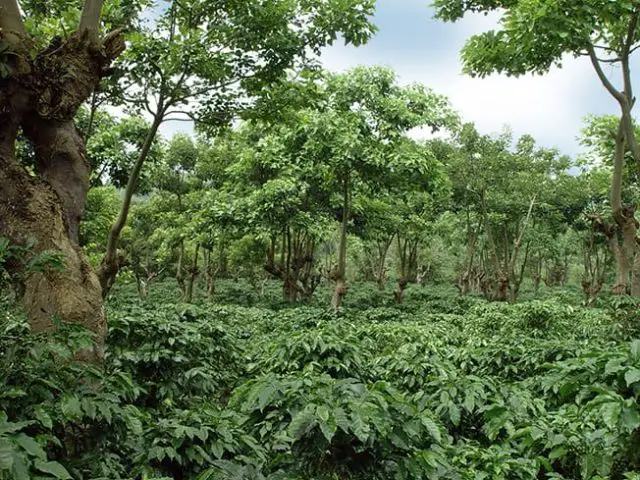Recently, the affirmative opinion was given of the Legislative Special Commission on Science, Technology, and Education, in which Costa Rican coffee will be declared a national symbol of the economic, social and cultural development of the nation.
The purpose of the project is to recognize the socio-economic importance of the so-called “golden grain” for the country. It is important to highlight that this proposal arose after an investigation carried out by a group of students of the San Rafael School of Santa María de Dota.
One of the data that this investigation yielded was that from the very first 27 bushels of coffee that were planted in Santa María de Dota in 1867 by Mr. Alejo Morales has been an engine for the socio-economic development of many families in our country.
The legislator Wagmer Jiménez Zúñiga, one of the promoters of this initiative, commented: “With the project, Costa Rican coffee is declared a National Symbol for the Economic, Social and Cultural Development of Our Country. The Ministry of Public Education is instructed to include in the corresponding study programs, Costa Rican coffee as a national symbol “.
Data from the Coffee Institute of Costa Rica (ICAFE) revealed that 100% of Costa Rican coffee is of the Arabica species, of the Caturra and Catuaí varieties, and the “Zona de los Santos” is where there is the highest production of the “Golden Grain” with 36.6 percent of the national production.
The best coffee in the world.
Since 1989, the planting of Robusta coffee is prohibited by law in Costa Rica due to its lower quality. That is why currently 100% of Costa Rican coffee is of the Arabica species which produces a higher quality bean with better organoleptic characteristics: pleasant and aromatic.
Costa Rican coffee is grown in fertile soils of volcanic origin and of low acidity, which results in a better quality grain. The areas where Costa Rican coffee is grown are Brunca, Turrialba, Tres Ríos, Orosi, Tarrazú, Central and Western Valleys, and Guanacaste.
Recollection method.

The manual and selective collection methods are used: only mature beans are chosen (in optimum ripening); this allows for better coffee washing. As for grain drying, sun drying is used, one of the most demanded systems in the world markets; the process takes 7 days. Mechanical drying is also used which reduces the optimum drying point time (12% humidity) to only 24 hours.
One of the goals of the coffee sector in Costa Rica is to increase the sale of the grain in the best coffee markets worldwide thus keep on positioning as a high-quality coffee in international markets.
Environmentally friendly coffee production.
One of the main characteristics of Costa Rican coffee production is that insecticides are not used in coffee plantations; weed control is carried out with a mixture of non-toxic chemicals and manual labor. It should be mentioned that the application of chemicals is done rationally and manually from plant to plant and not aerial.
Coffee farms constitute, after natural forests, the second “forest” areas of importance in Costa Rica, contributing to the conservation of river basins and cleaning the environment. Regarding the use of water, it is used rationally only for washing and transporting the grain already separated from the pulp. Of the waste produced, the pulp is used as organic fertilizer.
According to the Costa Rican Coffee Institute, “Costa Rican sustainable coffee is produced in plantations with high biological diversity and low agrochemical applications. It conserves resources, protects the environment, produces effectively, competes commercially and reinforces the quality of life of farmers and society as a whole”.
Regarding fertilization, soil analyzes are carried out that indicate which are the most suitable fertilizers in the least amount possible and preferably being organic. Costa Rican coffee is now considered one of the best in the world, due to its high quality and exquisite flavor, if you consider visiting Tica lands soon, do not hesitate to try this delicious and captivating drink.


